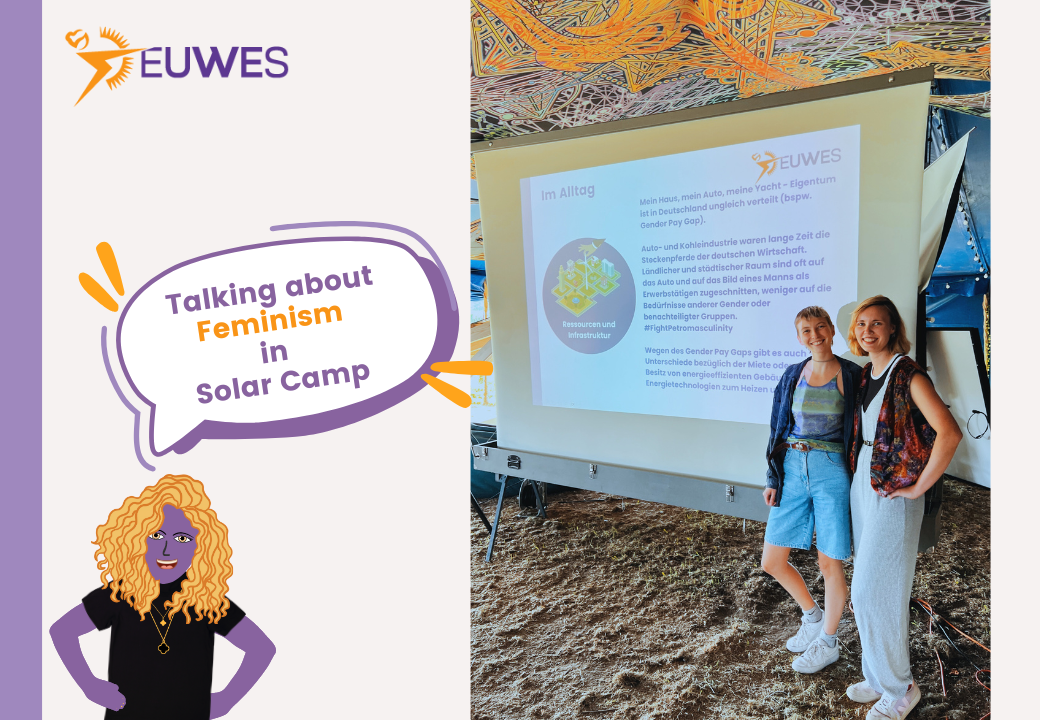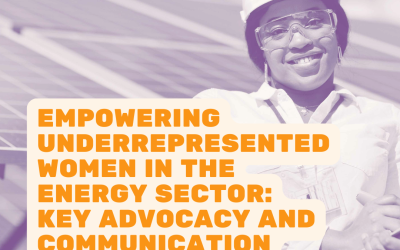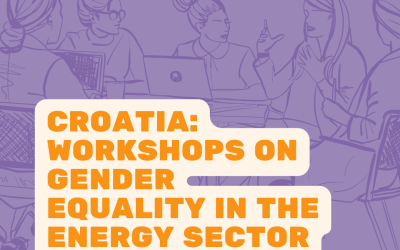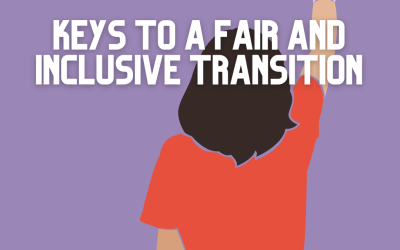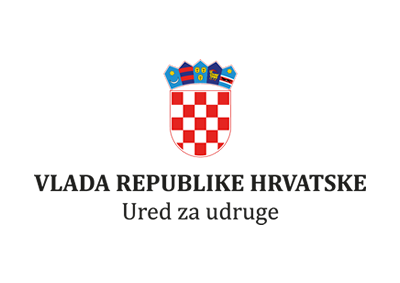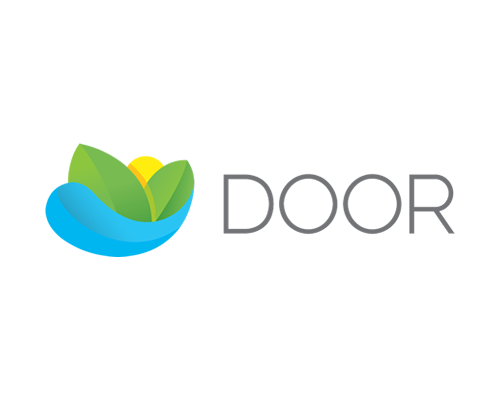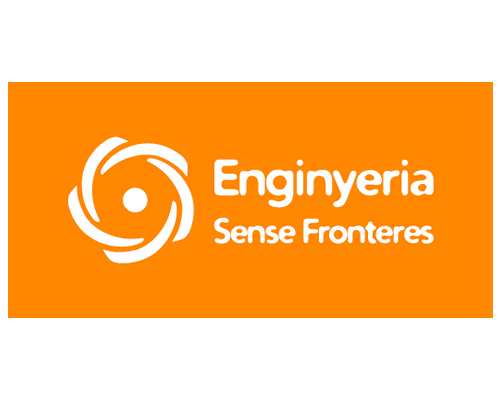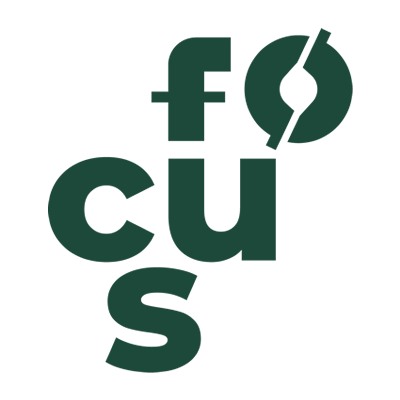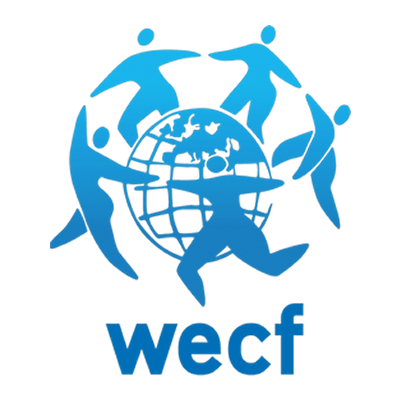On 7th August, Women Engage for a Common Future (WECF) held a workshop at the Munich Solar Camp as part of our EUWES project.
With around 15 participants, WECF focused on the social impact of the energy transition. The guiding questions were: How can the energy transition be made fair for everyone? And why does everyone benefit if it is also gender-just?
The Solarcamp is a one-week training programme for young people wanting to become photovoltaic installation assistants. In Munich, the camp is organised by Leocor gGmbh and took place at the beginning of August this year.
WECF was there to shed light on the social aspects of the energy transition, while the rest of the Solarcamp workshop programme focused primarily on technical and economic aspects. The aim of our EU-funded project EUWES (Empowering Underrepresented Women in the Energy Sector) is to improve the representation of WLINTA* in the energy sector – be it in the political sphere, the labour market or in study programs and professional formations.
The one-hour workshop began with some perspectives from the participants on questions such as ‘I have reproduced sexism myself’ or ‘Climate and energy legislation in Germany have different effects on different genders’.
WECF then introduced basic concepts from feminist theory and the energy transition.
The main part of the workshop was organized around a storytelling method. Using the fictional example of Joe, whose life and education path with different barriers was traced, WECF trainers illustrated the impact of structural conditions on individuals and their career paths. For example, gender stereotypes in kindergarten and schools are already leading to fewer girls developing an interest in subjects such as physics, despite further education programmes such as Girls’ Days. Challenges in professional life can be seen, for example, in the lack of institutional measures in energy companies – in that there is a lack of gender-transformative training for employees or no remunerated positions for gender equality officers. We discussed structural and resource-related gender differences in the energy sector in more detail – for example, energy consumption is gender-specific in that men drive their cars much more often and therefore consume more (fossil) energy, while women consume more energy in the household due to care work. If you want to read more about such gender-specific aspects, have a look at our report on the current status quo of gender mainstreaming in the German energy sector: D1.2-Report-on-the-mapping-of-national-gender-policies-in-energy-sector_Germany.pdf (door.hr)
WECF was delighted to be able to engage in a dialogue with such diverse and interested people during solarcamp! The workshop and the discussions afterwards as well as the broad prior knowledge of many participants were also very enriching. Many thanks to Leocor gGmbH for organising the camp!
Would you like to receive regular updates on EUWES activities in Germany? Then follow our e-mail list.
Are you interested in a workshop offer? Then contact us at: euwes_internal@wecf.org
You can find a report on our last workshop here: https://www.wecf.org/de/euwes-schulworkshop-zu-energie-und-gender
*WLINTA stands for women, lesbians, intersex, non-binary, trans and agender people
